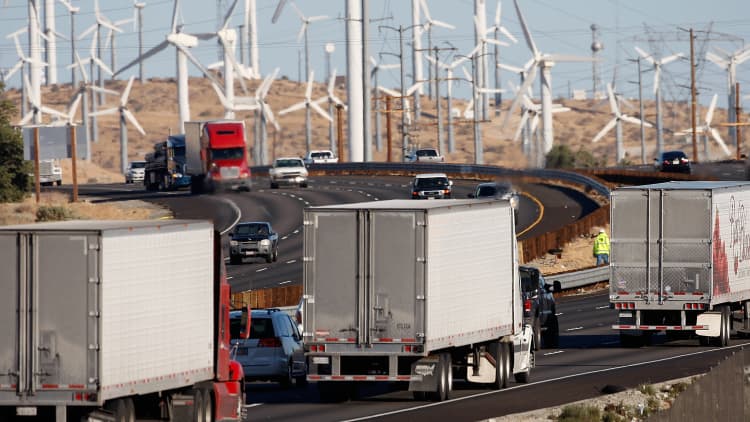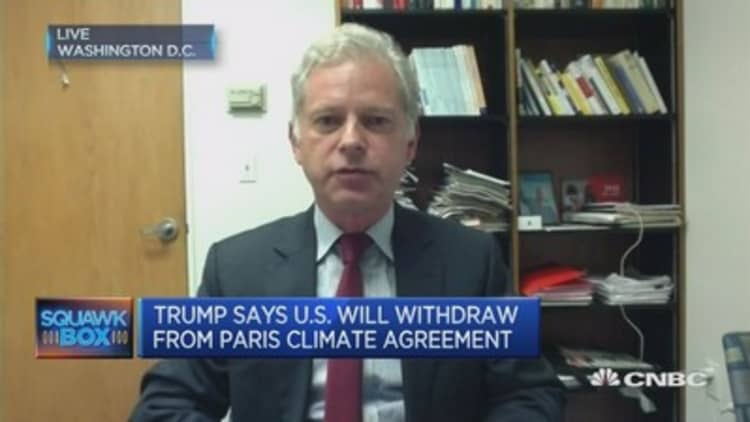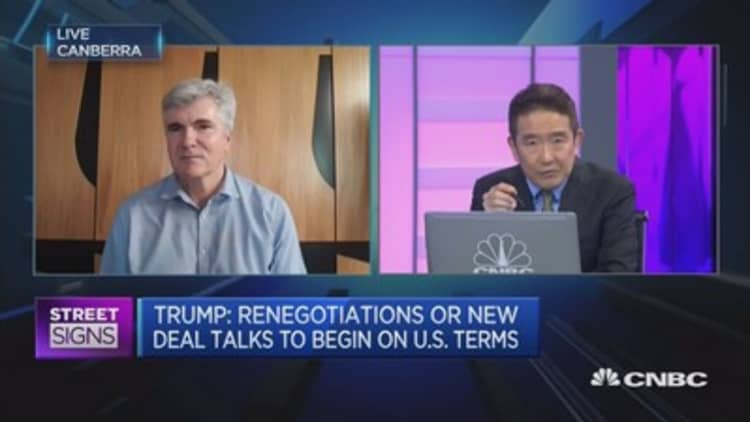


President Donald Trump's decision to exit an international climate agreement sparked outrage from many quarters, but some countries are likely already eyeing the positives from the move, experts said Friday.
"This opens up opportunities for other countries to occupy the power vacuum that the U.S. is leaving when it pulls out of these sorts of agreements," said director at the Australian National University's Climate Change Institute, Mark Howden.
"I could imagine some countries are very positive — seeing this as a good opportunity to start flexing their muscles internationally," he added.
China, India and EU are countries that are progressing in green initiatives and will stand to benefit, Howden said.
The world's second largest economy and EU leaders have already said they are still committed to the Paris Agreement on tackling global warming and are expected to announce intensified joint measures to reduce carbon emissions in a statement later on Friday, Reuters reported.
"We are going to see closer cooperation between China and the European Union in accelerating the energy transition into a low-carbon economy," Frank Yu, Wood Mackenzie's principal consultant of Asia-Pacific power and renewables, wrote in a note on Friday, adding that the U.S. withdrawal presents "an unprecedented opportunity for China".
He predicted that U.S. companies involved in environmentally friendly technologies will relocate renewable technology research and development centers to Asia, helping countries such as India, Indonesia and Vietnam that need foreign capital to reach renewable goals.
"By leveraging the strong manufacturing value chain in China and other Asian countries, cost of renewables could fall even faster and penetrate more rapidly to displace dirty fossil fuel such as coal in key Asian markets," Yu said.
Director of the Center for EU Studies at Renmin University, Wang Yiwei, said China and the EU can cooperate to taking a leading role in tackling climate change and setting new standards for technologies like electronic vehicles, changing the "traditional confrontational" stance between China and the West.
However, it's still too early to call a new international order, said Philippe Le Corre, a fellow at The Brookings Institution.
"I don't believe this is a redistribution of cards with a new international order under the banner of China and the EU," Le Corre told CNBC's "Squawk Box," adding that he didn't believe China's international relationships would see major shifts.
"The Sino-American relationship is a strategic partnership as well as a very competitive relationship — it's not going to go away," Le Corre said.

